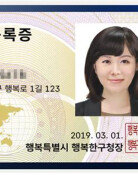13-year-old criterion for gross real estate tax needs to be reviewed
13-year-old criterion for gross real estate tax needs to be reviewed
Posted March. 19, 2021 07:36,
Updated March. 19, 2021 07:36
As the declared prices of multi-family housing rose 19.1 percent this year, a number of people became newly subject to gross real estate tax among the middle-class single-house owners. A significant number of people are paying one month-worth of salary for increased gross real estate tax and property tax. Due to the skyrocketing housing prices, punitive property tax is even imposed on those who own houses for personal uses, rather than speculation. In order to resolve the issue, the criterion for gross real estate tax imposition, which hasn’t changed over the last 13 years, needs to be reexamined.
For single-home owners, gross real estate tax is imposed on houses whose posted prices are over 900 million won. The previous threshold of 600 million won was raised to 900 million won in 2008 limitedly for single-home owners and has remained the same since then. Those subject to the taxation had not changed much as average sales prices of apartment units in Seoul rose only 14.6 percent from December 2008 to April 2017.
However, the issue has become bigger as apartment prices rose 76 percent for three years and 10 months under the current administration. The number of apartment units in Seoul subject to gross real estate tax increased 4.7 times from 86,523 in 2017 to 406,167 in 2021. The figure is expected to increase at an accelerated speed as the government plans to raise the declared prices of multi-family housing to 90 percent of market prices – adjustments will be made by 2027 for houses with market prices of 900 million won to 150 million won and by 2025 for houses with market prices of 150 million won or over.
Gross real estate tax and property tax are taxes imposed on unrealized profits, which means their increase lower disposable income of households and negatively affecting the recovery of the domestic economy. In particular, retirees who own a house subject to gross real estate tax but have no significant income will struggle to pay increased taxes.
While the opposition party is arguing to raise the criterion to 120 million won based on the above reasons, the government and the ruling party, which expect that a massive increase in property tax will help stabilize the real estate market, are not responding. However, it is not normal that gross real estate tax, which was originally legislated to impose an extra tax on minimum high-priced multi-house owners, is creating a huge burden for a number of people in the middle class and that the number of people subject to the tax increased 40 percent in a year. The government needs to reexamine and make the gross real estate tax criterion more realistic before side effects of contracted consumption and tax resistance will appear.






